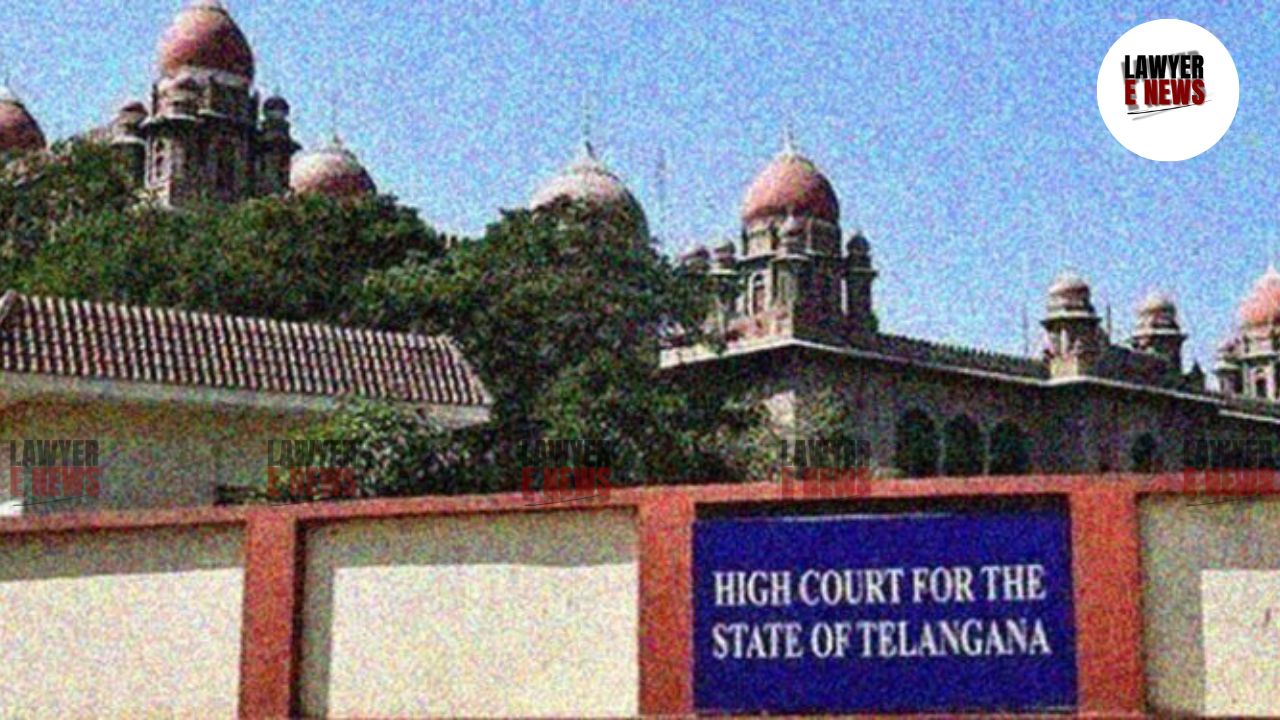-
by Admin
15 February 2026 5:35 AM



Telangana High Court dismissed a revision petition filed by defendants in a family partition suit, upholding the trial court’s order rejecting their plea for dismissal of the plaint under Order VII Rule 11 of the Civil Procedure Code (CPC). The Court emphasized that issues such as cause of action, limitation, and valuation of court fees are mixed questions of fact and law, requiring adjudication through a full trial rather than summary dismissal.
The dispute arose from a suit filed by Jetturi Chandrakala, who sought a partition of joint family properties. The defendants, including her siblings, contested the claim, asserting that the properties had already been divided by their father, Siddaramappa, during his lifetime. They argued that the suit was filed without any legal basis or title and was barred by limitation.
The defendants filed an interlocutory application (I.A. No. 580 of 2023) under Order VII Rule 11(a) and (d) CPC, seeking rejection of the plaint for lack of cause of action and time-barred claims. They also alleged discrepancies in property extents and questioned the adequacy of court fees paid by the plaintiff.
The Principal District Judge, Vikarabad, dismissed the application, prompting the defendants to approach the High Court under Article 227 of the Constitution.
Justice Nagesh Bheemapaka reaffirmed that a plaint must not be rejected unless it fails to disclose a cause of action. He observed:
“The averments in the plaint must be read as a whole and taken at face value for determining the existence of a cause of action. The plaintiff has clearly alleged that the properties are ancestral, were never partitioned, and that she is in joint possession. These averments suffice to establish a cause of action.”
Citing P.V. Guru Raj Reddy v. P. Neeradha Reddy (2015) 8 SCC 331, the Court held that:
“Whether the suit is barred by limitation or lacks merit is a matter to be decided after a full-fledged trial. Limitation is a mixed question of fact and law that cannot form the sole basis for rejecting the plaint.”
The defendants relied on revenue records, such as Pahanis and mutation entries, to argue that the properties were already divided and no longer constituted joint family assets. The Court dismissed this argument, noting:
“Revenue records are maintained for fiscal purposes and do not constitute conclusive proof of ownership or possession. Claims of prior partition require evidence and cannot be adjudicated at the stage of deciding an application under Order VII Rule 11 CPC.”
The defendants contended that the plaintiff had undervalued the suit and failed to pay the requisite court fees. However, the Court observed:
“Valuation disputes pertain to procedural aspects and do not warrant rejection of the plaint. If the plaintiff claims joint possession, she is entitled to pay court fees under Section 34(2) of the Telangana Court Fees and Suits Valuation Act.”
The defendants invoked T. Arvindham v. T.V. Satyapal to argue that the plaint was a result of “clever drafting” aimed at creating an illusion of cause of action. The Court rejected this contention, stating:
“The allegations in the plaint do not appear to be contrived or devoid of substance. The principle laid down in T. Arvindham is distinguishable on facts.”
Dismissing the revision petition, Justice Bheemapaka held: “Rejection of a plaint is a drastic measure that must be exercised with caution. In the present case, the plaint discloses a cause of action, and the issues raised by the defendants require evidence and trial for resolution.”
The Court directed that the partition suit proceed on its merits and clarified that the defendants’ objections regarding limitation, court fees, and prior partition could be addressed during trial.
Date of Decision: November 20, 2024
